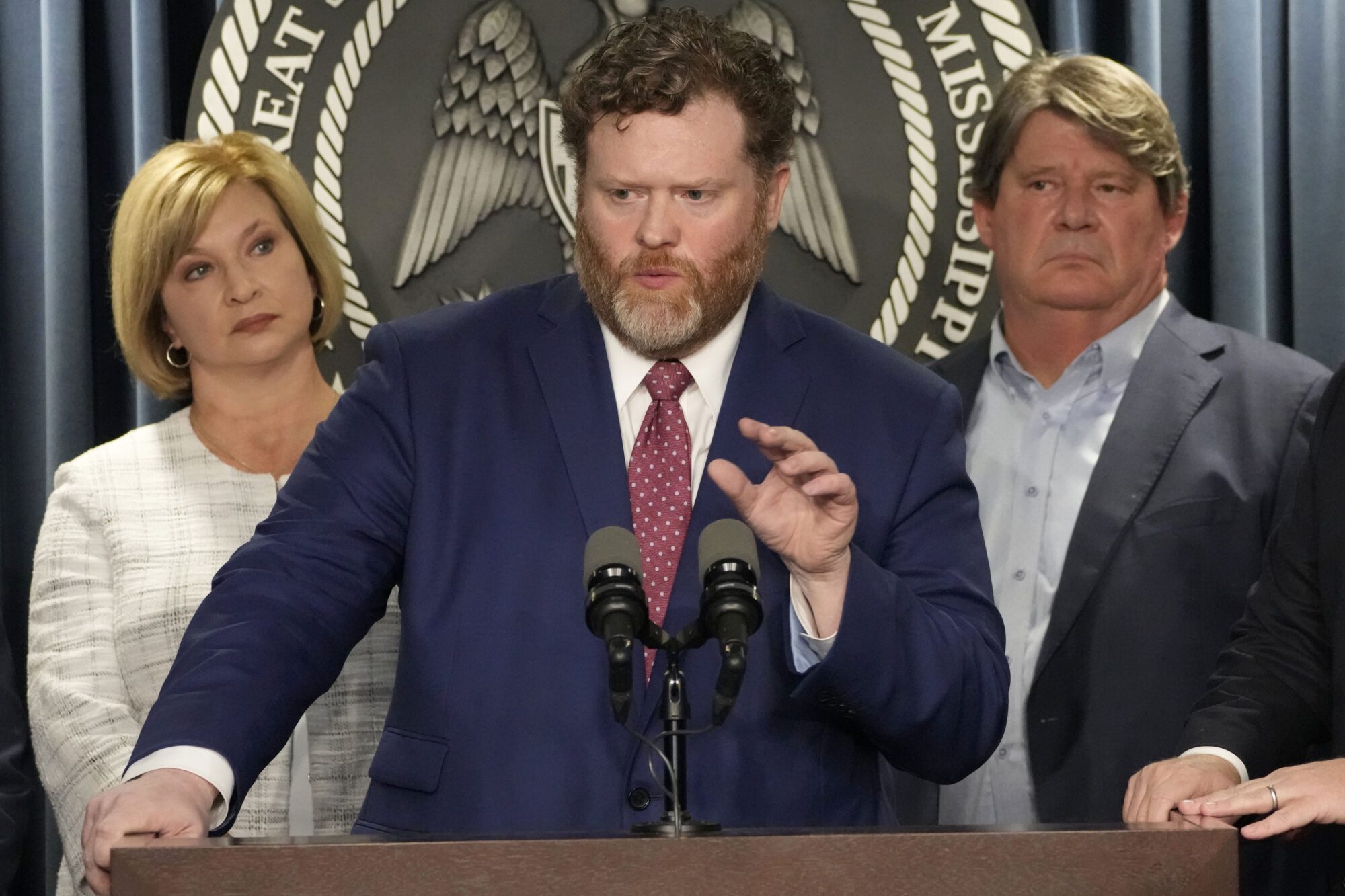
(AP Photo/Rogelio V. Solis)
- Governor Tate Reeves praised Medicaid Executive Director Drew Snyder for his service and announced the appointment of Deputy Executive Director Cindy Bradshaw as Snyder’s successor.
Mississippi Division of Medicaid Executive Director Drew Snyder is leaving his post to enter the private sector. Snyder, who was first appointed in January of 2018, is one of the five longest serving Medicaid directors in the U.S.
In a statement provided to Magnolia Tribune, Governor Tate Reeves announced the selection of Deputy Executive Director Cindy Bradshaw to serve as Snyder’s successor after a transition period.
Gov. Reeves praised Snyder’s tenure at the helm of Medicaid. “Drew Snyder is a talented and dedicated public servant who has driven positive, lasting change in our state’s Medicaid program. I appreciate his acumen and his exemplary leadership and wish him continued success in the next chapter of his career,” Reeves said.
“Working with the Division of Medicaid team, health care professionals, state leaders, and other partners to enhance value and elevate quality in the Mississippi Medicaid program has been the most rewarding experience of my career.” Snyder said. “I’m pleased with the progress that has been made, and I’m optimistic about what can be accomplished in the years ahead for the betterment of Medicaid members and Mississippi’s economic health.”
Snyder assumed leadership of the Division of Medicaid at a time when the agency had a $47 million projected budget shortfall.
He told Magnolia Tribune that since taking over, “the agency has achieved six consecutive balanced state support budgets, and now has built a nine-figure reserve, despite record enrollment in 2023 and a 10 percent decrease in state support funding since 2017.”
During the span of his leadership, the headcount of the agency was reduced by more than 10 percent and a more stringent process for reviewing vendor contracts was implemented. Snyder says the job has involved balancing the delivery of quality services with being accountable to the taxpayers who fund the program.
“I am in favor of limited government, but I am not anti-government. What government does it should do well. Mississippians deserve well-run public services,” says Snyder. “And running the Medicaid program the right way doesn’t just benefit the recipients of Medicaid and their families or the providers receiving payments. Running the Medicaid program the right way frees up resources for other public services that are important or maybe even increases the chances of lowering taxes.”
He points to changes made to improve quality of service, including a payment program that rewards hospitals for curbing preventable hospital returns, the hiring on an in-house clinician to serve as medical director, new policies that increased funding for residency training at Mississippi hospitals, and the “EASE initiative” to increase access of beneficiaries to primary care.
Amid concerns about the solvency of Mississippi hospitals, in 2023, Snyder oversaw the adoption of a plan by Gov. Reeves to increase Medicaid reimbursement rates to hospitals. He says the approval of that plan by the Center for Medicare and Medicaid Services (CMS) has resulted in “a $900 million increase in directed payments to Mississippi hospitals.”
In a recent Joint Legislative Budget Committee hearing, House Speaker Jason White told Snyder, “I worry about a lot of state agencies a lot of days, but I appreciate the job you do and the things you do over there and we’re glad you’re driving the ship.”
According to Gov. Reeves’ statement, Snyder is expected to stay on to aid in the transition through the end of October. No details were provided on his next role.
Snyder’s replacement, Cindy Bradshaw, currently serves as Medicaid’s Deputy Executive Director for Eligibility. In her time at Medicaid, Bradshaw played an important role in maneuvering through Medicaid eligibility changes brought about by the public health emergency declared during the COVID-19 pandemic, including the implementation and subsequent unwinding of federal “continuous coverage” requirements, which, for a 3-year period, prevented Medicaid from checking program eligibility.
Bradshaw previously served as “State Insurance Administrator, where she oversaw a billion-dollar annual portfolio that included the 200,000-member State and School Employees’ Life and Health Insurance Plan. Bradshaw also has nearly two decades of experience in health plan operations for private insurers,” according to the Governor’s statement.
“With deep experience in health plan operations in the public and private sectors, Cindy Bradshaw is well-prepared to lead Mississippi’s Medicaid program. She has a proven record of elevating operational performance and advancing initiatives aimed at improving outcomes and protecting taxpayers. She is an excellent choice to ensure continuity and continued progress in the Medicaid program,” said Gov. Reeves.











